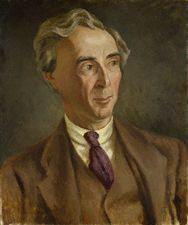Heredity and Selection in Sociology. By George Chatterton-Hill. London: Adam and Charles Black, 1907. Pp. xxx, 571
Although it is now nearly half a century since The Origin of Species appeared, and although many measures adopted on quite other grounds are recommended by a smattering of “Darwinism,” yet biological considerations have not begun to have any real influence upon the actions of statesmen or upon the opinions of those who are active in politics. Nevertheless, it is hard to resist the conclusion that no aspect of our institutions is so important, or so urgently in need of consideration, as their effect upon the biological quality of the race. This aspect is that considered by Mr. Chatterton-Hill; and although his practical recommendations appear to us for the most part unsupported by the facts to which he appeals, yet these facts are such as ought to be widely known, and such as no social reformer can safely ignore.
His book begins by a long account of the theory of heredity and natural selection, the main practical outcome of which is to show that, as Weismann has urged, acquired characteristics cannot be inherited. This conclusion, however, is subject to an exception: such acquired characteristics as affect the germ-plasm will affect the offspring. Thus disease, or change of climate, though both acquired, may have effects which are inherited. The extent of this exception, we are given to understand, is inconsiderable; but it remains undetermined, and somewhat mitigates the rigidity of Weismann’s theories. Practically, however, we must presumably admit such facts as that an educated man’s children do not inherit any greater intelligence than if their father had remained uneducated; and that, broadly, the stock is not improved except by some form of selection.
In his second part, on Social Pathology, the author accumulates his indictment against the institutions of Western Europe; and a very formidable indictment it is. Suicide and insanity are both increasing with alarming rapidity. But when we turn to the political deductions from these facts, our author shows, so it seems to us, a complete misconception of the problem. In a chapter headed “The Bankruptcy of Liberalism”, he shows, as it is not difficult to do, that its two ideals of liberty and free competition are incompatible. Proceeding to Socialism, he contends that it aims at suppressing the struggle for existence, and that such suppression, by preventing the elimination of the unfit, must lower the biological quality of the race. He tells us also, of course, that Socialism postulates the natural goodness of man. He proceeds, like Mr. Kidd, to affirm that unaided reason can only prompt men to selfish actions, though he does not deign to give any grounds for this view. We want, therefore, some means of prompting men to actions contrary to reason, and this is to be found, for Europeans, in the Catholic faith, though Asiatics should be allowed to retain the religions they have.
Now in all this there seems to us to be an inadequate conception both of the problem and of its solution. The problem is this: Given that, now-a-days, the more intelligent section of society is less prolific than the less intelligent, how shall we prevent this? To revert to medievalism is impossible; this proposal is virtually one for hastening the advent of those very evils which are to be feared if the present regime continues unchecked. But a real solution is possible on other lines. The birth-rate among the better sections of society has declined in recent years because of the voluntary limitation of families; and this in turn is due to the economic disadvantages of a large family. If these disadvantages were removed, the effect would cease with the cause. The problem then is essentially one of economic and social organization. It is not possible for a civilized society to make progress by the destruction of the unfit, but by the opening up of every avenue of opportunity for those who are capable of taking their part in social life.
B. RUSSELL
* Bertrand Russell, “Biology and Politics,” The Nation (London) 3 (Sep 26 1908), 918, 920 Review of George Chatterton-Hill, Heredity and Selection in Sociology
